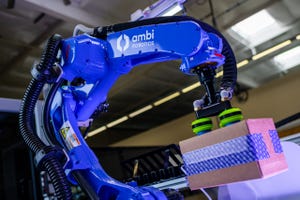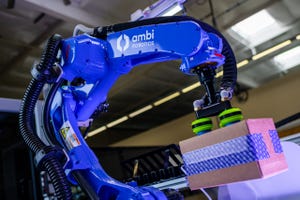Dubai’s Roads and Transport Authority (RTA) has broadened the reach of its nol Card by adding electric scooter payments to the list of supported options, marking another milestone in Dubai’s pursuit of a seamless, cashless mobility ecosystem. The initiative places nol Card at the center of a growing multi-modal network, enabling scooter riders to pay using the same digital credential they already use for major transit modes. This move, limited to scooters operated by RTA-accredited providers, underscores the city’s ambition to knit together last-mile travel with established public transportation, making it easier for residents and visitors to move from a doorstep ride to a metro, tram, or bus connection without carrying cash. In practical terms, the integration means riders can access convenient, unified payment experiences in and around transport hubs, aligning with broader plans to simplify urban mobility and reduce friction for daily commutes.
This strategic integration is designed to bolster first- and last-mile connectivity, a cornerstone of Dubai’s transportation vision. By embedding nol Card into the e-scooter payment ecosystem near public transport stations, the RTA aims to remove barriers between micro-megas and macro-transit legs. The intent is to deliver a smooth transition from the final leg of a journey to the broader transit network, ensuring users can plan trips, pay seamlessly, and enjoy a frictionless experience from start to finish. The initiative also reflects a broader policy stance: moving toward a cashless economy where digital wallets and stored-value cards power both everyday errands and longer trips. In articulating this vision, Salahuddin AlMarzooqi, the director of Automated Collection Systems at the RTA, highlighted the plan as a practical step toward a more integrated transport landscape. He emphasized that the nol Card integration supports improved connectivity between first and last-mile segments and paves the way for a more user-friendly journey across the city’s mobility spectrum.
Users interested in leveraging nol Card for e-scooter travel can activate the service by downloading the appropriate application, following a straightforward onboarding flow. The process is designed to be intuitive, with clear steps to link an existing nol Card account to the scooter payment feature or to create a nol Card-enabled profile if one does not yet exist. This activation pathway is part of a broader strategy to minimize friction and accelerate adoption, particularly among riders who frequently combine micro-transport modes with longer-haul transit options. The apps involved are built to accommodate both newcomers and seasoned nol Card holders, offering guided prompts, in-app help, and real-time status updates to ensure users can confidently manage their payments on the go. By streamlining the activation process, the RTA seeks to encourage broader usage among people who rely on e-scooters as a practical component of their daily mobility routine.
Within the nol Card ecosystem, the card functions as a versatile payment instrument across an expanding set of services. Nol Card is already accepted across the city’s public transport network, including the metro, buses, and trams, and its reach has grown to encompass private services and retail applications as well. The latest extension to electric scooters complements this existing footprint by enabling riders to pay for e-scooter usage with the same credential used to access transit services, shopping, and other city amenities. This cross-domain acceptance reinforces the nol Card’s role as a centralized payment solution, reducing the need for multiple wallets or cards and simplifying user experiences. As part of this broader expansion, nol Card’s acceptance extends beyond transport to private mobility providers and auxiliary services, reinforcing its utility for daily life in Dubai. The system’s flexibility also supports access-related services such as parking and facility entry, creating a cohesive payment backbone that aligns with the city’s cashless ambitions.
RTA has introduced tailored nol packages designed to maximize value for different user segments, including students and travelers who seek cost-efficient travel options. These offerings are crafted to provide meaningful benefits not only in transport but also in associated consumer spaces, including dining, shopping, and entertainment. Such packages aim to incentivize broader nol Card adoption by delivering multi-faceted savings and convenience across a range of everyday activities. The student-oriented options, for example, are structured to align with academic calendars and commute patterns, delivering discounted fares or bundled perks during key periods. At the same time, travel-focused packages seek to incentivize longer trips or catchment-area explorations, where integrated mobility can be complemented by dining and leisure experiences. By weaving together transport costs and lifestyle benefits, the RTA is positioning nol Card as a central hub for both mobility and city living.
In tandem with the expansion, the RTA is transitioning its nol system to an account-based framework that enhances capability and control for users. This upgrade enables more sophisticated trip planning, booking, and pre-payment through smart channels, transforming how commuters and visitors interact with the city’s mobility options. An account-based system supports more efficient management of funds, easier reload and synchronization across devices, and improved transparency and tracking of trips. It also opens doors to advanced features such as personalized travel suggestions, real-time fare calculations, and secure, seamless payment experiences across multiple services. The migration toward an account-based structure signals a long-term commitment to scalable, user-centric service design that can accommodate growing demand and evolving mobility patterns in Dubai.
The broader impact of nol Card expansion and the move toward an account-based system is multifaceted, touching on urban planning, consumer behavior, and the economics of transportation. By consolidating payment modes, Dubai’s transport authorities reduce the cognitive load on users, encouraging more people to combine micro-mobility with mass transit. This, in turn, has the potential to relieve congestion at peak times, optimize route choices, and improve overall network efficiency. For riders, the convenience of paying for e-scooters in the same way they pay for a metro ride or retail purchase can improve journey consistency and reliability. Businesses connected to the nol ecosystem stand to benefit from increased foot traffic, greater data insights, and the ability to design targeted promotions that span multiple touchpoints—from transit to dining to entertainment. From a policy and governance perspective, the integration reinforces Dubai’s commitment to a modern, data-enabled mobility framework that emphasizes accessibility, affordability, and efficiency for all users.
In terms of user experience, the nol Card expansion to electric scooters is designed to deliver a coherent, frictionless journey across modalities. Riders can anticipate dependable access to a streamlined payment experience at critical nodes—such as entry points near public transport stations—where last-mile decisions are made and onward travel is planned. The compatibility with apps means riders can manage balances, view ride history, and receive timely notifications about promotions or policy updates in a single, centralized interface. The emphasis on seamless onboarding, transparent fare structures, and consistent cross-service branding contributes to a more intuitive perception of transport options. This unified approach is intended to lower barriers to adoption, especially for first-time users who may be new to nol Card or who prefer a single digital wallet for multiple purposes. The result is a more intuitive, navigable mobility system that supports Dubai’s strategic aim of a cohesive, cashless urban environment.
From a regulatory perspective, the integration of e-scooter payments into the nol Card framework reflects ongoing efforts to standardize payments and governance across mobility services. By aligning e-scooter usage with established payment channels, RTA aims to ensure consistency in how services are monetized, monitored, and audited. The move also underscores a commitment to security and risk management, as centralized accounts enable stronger oversight, fraud prevention, and more robust reporting mechanisms. Riders can expect ongoing refinements to security features, including authentication steps and transaction monitoring, designed to protect consumer data while enabling convenient access to mobility options. As Dubai continues to evolve its cashless ecosystem, such measures can help maintain trust and reliability across an expanding range of transportation and lifestyle services.
The long-term implications for the RTA’s digital transformation strategy are substantial. Nol Card’s expanded footprint into e-scooter payments demonstrates a deliberate, incremental approach to unifying a diverse mobility landscape under a single payment umbrella. This aligns with broader digitalization goals, including enhanced data analytics, smarter fare structures, and more personalized customer experiences. The ability to plan trips, pre-pay, and manage accounts via smart channels represents a shift toward proactive mobility management—where users anticipate needs, receive real-time guidance, and move through the city with minimal friction. For Dubai, this evolution supports a more sustainable and efficient city model, reinforcing the appeal of a connected, technology-enabled living environment that encourages responsible consumption and convenient, economical travel.
Conclusion
The RTA’s decision to integrate nol Card with electric scooter payments marks a pivotal step in Dubai’s journey toward a fully integrated, cashless mobility ecosystem. By extending nol Card’s reach to e-scooters operated by RTA-accredited providers and situating the payment option near public transport nodes, the city enhances first- and last-mile connectivity while delivering a unified user experience. Activation through dedicated apps, the ongoing expansion of nol Card across metro, buses, trams, taxis, marine transport, retail, parking, and facility access, and the introduction of tailored student and travel packages collectively reinforce nol Card as a comprehensive payment solution for urban life. The transition to an account-based system further elevates the user experience by enabling trip planning, booking, and pre-payment through smart channels, enabling more efficient management of journeys and funds. As Dubai continues to streamline payments and mobility, this initiative stands to improve convenience, encourage cashless spending, and generate data-driven insights that can inform future transportation policy and city planning. Through these developments, residents and visitors alike can anticipate a more seamless, integrated, and user-centric approach to navigating Dubai’s dynamic urban environment.


